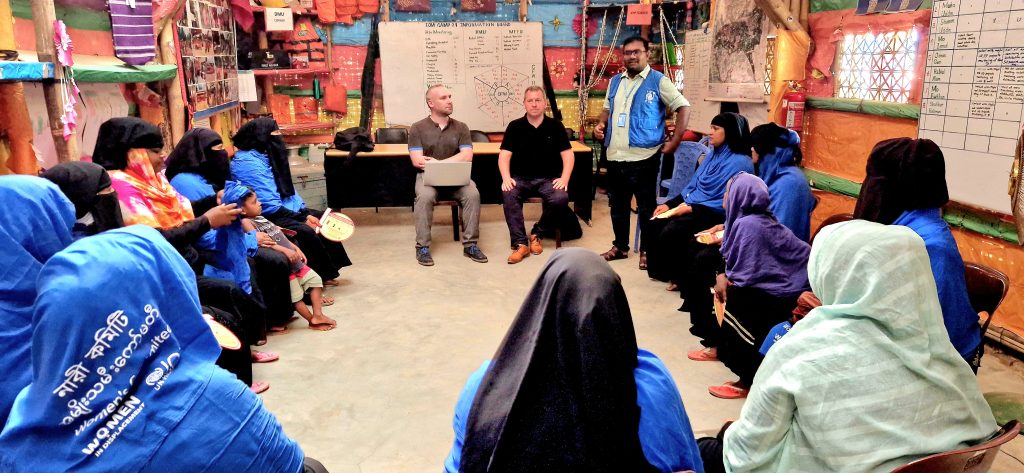
Currently, there are more than 250 million international migrants and about 65 million refugees and displaced people around the globe. Global inequality and poverty, regional conflicts, persecution, and natural disasters are among the most urgent reasons for which people leave their homes. Migration impacts people’s lives in many dimensions: migrants’ well-being, their opportunities, and their human rights are all dramatically affected. This reality makes international migration a global issue of historical significance and one of the most urgent human rights issues of our time.
The GYA Working Group “Global Migration and Human Rights” provides an international and interdisciplinary forum for addressing the global challenges brought about by international migration. We engage in scholarly research, combining insights from different academic disciplines—such as history, international law, psychology and philosophy— and we also serve as an advisory group/council, providing policy-oriented viewpoints and guidelines to international institutions based on the unique and multidisciplinary perspective of young scholars.
At the inaugural meeting in September 2016 in Berlin, the Working Group identified several decisive fields supporting a better protection of human rights in the context of migration. One of the key avenues discussed focuses on global individual responsibility in the case of newcomer integration in host societies. Here, we ask how ordinary citizens in host countries can contribute personally to the integration of newcomers, particularly refugees.
Building on available knowledge in such different disciplines as history and migration studies, social psychology, international law, and moral and political philosophy, we aspire to provide a novel account of understanding the global responsibility of individuals who see themselves as global citizens.
After a preparatory meeting in September 2016 in Berlin, the group Global Migration and Human Rights was established as a GYA working group in 2017. The group met again in May 2017 in Edinburgh. An international workshop on Global Individual Responsibility was held in April 2018 in Munich, Germany. From May 2019 onwards, the group was led by two new co-leads.
Projects 2024/25
In April 2024, group members conducted a study visit to Cox Basar, Bangladesh, for a project on “Challenges of refugee status – free access to education and science” (project number GYAtufGMHRWG2023_2024/19092023). They conducted interviews with high officials of Bangladesh and the international community in charge of refugee issues to raise awareness about the challenges faced by the Rohingya refugees and Bangladesh with a special focus on issues of education and science. A brief study report was presented at the GYA AGM in May 2024; a longer report/paper is forthcoming.
In August, group co-lead Abdalhadi Alijla (Sweden) participated in the Eleventh Nordic Conference on Middle Eastern Studies in Helsinki, Finland, on “Breaking and Creating Boundaries in the Middle East“.
Group co-lead Abdalhadi Alijla (Sweden) also participated in a workshop on “Mosques, families and Islamic law” at Copenhagen University, Denmark. The workshop focused on questions such as how are Muslims in mosques (and beyond) articulating their legal, ethical and normative identities? What kind of institutions are being build? How many so-called Islamic councils are there in the Nordic countries? The workshop was part of a research project on “Danish Mosques – Significance, Use and Influence”, which is funded by the Independent Research Fund Denmark (Humanities).
On the occasion of Nelson Mandela International Day on 18 July 2019, an interview with the authors of the book on Responsibility for Refugee and Migrant Integration was published. See here for details.
In April, a book on “Responsibility for Refugee and Migrant Integration” was published by de Gruyter.
In September 2018, group members participated in an Evidence and Policy Summer School, which was organised by the GYA’s Science Advice working group together with the International Institute for Applied Systems Analysis (IIASA), the European Commission’s Joint Research Centre (JRC), and the International Network for Government Science Advice (INGSA) in Laxenburg, Austria. The summer school’s theme was “The role of population and migration for sustainable development in the European neighbourhood”. It was aimed at early- to mid-career scientists interested in how to achieve impact on policy-making, as well as at policymakers interested in how to commission and use research in their daily work. The Migration group led breakout discussions of policy recommendations.
An international workshop on Global Individual Responsibility was held in April 2018. It aimed to expand on an understanding of the role of individual citizens in refugee integration, and reach new scholarly insights. Altogether 14 international speakers – scholars from a wide variety of disciplines, as well as practitioners and activists – discussed concepts of global individual responsibility and shed light on individual action and integration practices in high-income Western countries. See here for a workshop report.
© 2024 Global Young Academy